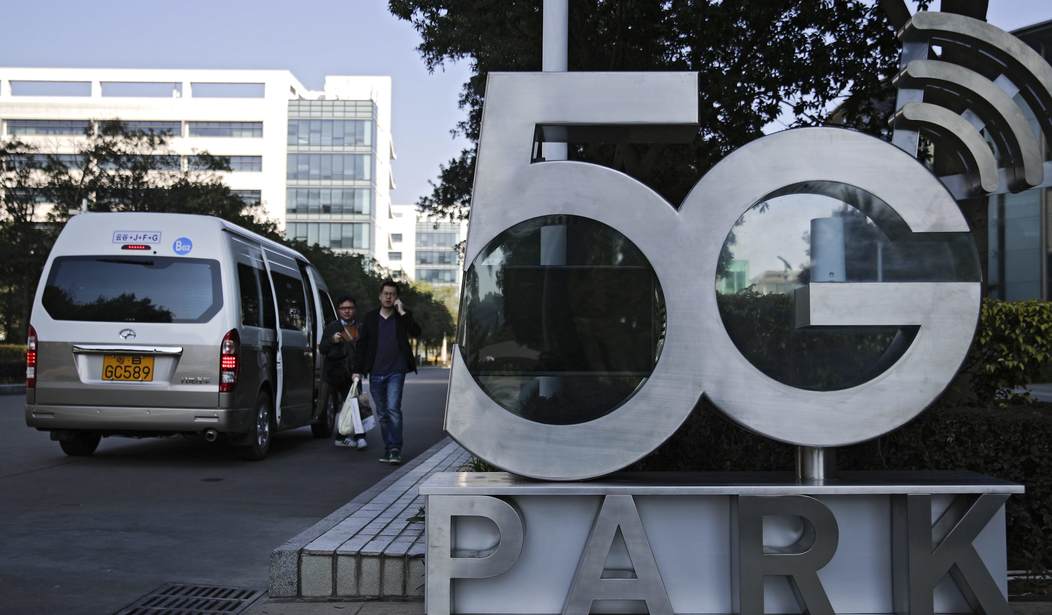That witticism is attributed to the Bolshevik leader Leon Trotsky, and the same applies to industrial policy, that is, government investment in industry. As a free marketeer I abhor industrial policy, except as a war measure. This is war, of sorts. I don’t think the United States and China will start shooting at each other at any time in the foreseeable future, but that isn’t the way this war will be fought. China is striving to dominate game-changing technologies starting with 5G broadband, but also including quantum computing, quantum communications, artificial intelligence, and others. If it succeeds, the United States will be poorer and weaker, and our alliances in Europe and Asia will crumble. We will resemble post-imperial Britain, a second-rate former great power.
The American public became aware this year of what China has been shouting from the rooftops for years. Its flagship telecommunications firm Huawei spends $20 billion a year on R&D and now leads the world in fifth generation (5G) broadband. With download speeds perhaps 2,500 times as fast as 4G LTE broadband, 5G makes possible an entire range of new technologies: robotic controls that communicate with each other, highly-coordinated drone swarms, driverless cars, augmented reality, big data processing, and many others.
No American company offers 5G systems. Two Scandinavian companies, Nokia and Ericsson, offer a costlier and inferior alternative, by all accounts (Huawei’s R&D spending is double their combined budget). The Trump administration has demanded that our allies keep Huawei out of 5G rollout, without success. Germany’s Economics Minister Peter Altmaier has warned that excluding Huawei would delay 5G rollout by years and add billions to the cost. The dust hasn’t settled, but the likely outcome seems to be a lot of egg on our face and a lot of sales by Huawei.
Huawei meanwhile is suing the U.S. government for banning purchases of its product by government agencies, claiming that the order violates due process. Controlling telecom hardware and software gives any country a window on information flows, and the Trump administration’s concern is entirely legitimate. Intelligence agencies, though, always exaggerate the value of data secrecy. Secrecy doesn’t win wars; logistical superiority in depth wins wars. The fact that no U.S. company has elected to compete with Huawei gives China a huge head start in civilian as well as military technologies. That’s the first time a Chinese company has leapfrogged the U.S. in a critical technology.
Various solutions have been bandied about, including the idea that the U.S. government should build a national 5G network and rent space on it to telecom companies. There’s nothing, in theory, wrong with that approach, which is promoted by investors with ties to the Trump administration. Mexico did that, and opened its red compartida (shared network) a year ago; eventually, the government-backed network will make broadband available to most of Mexico. The problem is that Huawei is building the broadband network, with some help from Nokia. That’s right: Huawei is building the 5G-capable systems on our border. That scares me a lot more than illegal immigrants. The U.S. government can spend scores of billions on a broadband network, but who is going to provide the systems? No American company is in that business.
Cisco Systems used to dominate internet hardware. It no longer manufactures hardware. It does software and consulting. It also has $72 billion of cash sitting idle in the bank. That’s roughly what Huawei spent on R&D during the past six years. Why doesn’t Cisco invest in 5G systems? Because Asians subsidize capital-intensive industry the way we subsidize bridges or baseball stadiums, and American companies don’t want to compete.
The right place to start to fix this disastrous situation would be the Oval Office. The president should haul in the CEO’s of Cisco, Intel, IBM, Google, and a half-dozen other tech companies and say, more or less: “What’s it going to take to get you boys to spend the hundreds of billions of dollars of cash sitting idle in your bank accounts? You come up with some proposals before I figure out a way to tax it.” The result will be some combination of tax cuts and subsidies. A good starting point for discussion might be an executive order requiring all high-tech defense inputs to be made in the USA. If the president issued such an order the tech industry would say, “But we don’t make these things in the U.S. anymore!” The response should be, “Learn to do it, and fast.”
The only thing I dislike more than industrial policy is losing wars. The winning formula for the United States has never involved direct investments in industry, but rather government support for basic R&D. I explained how this might work in a 2017 article for Journal of American Affairs. It’s not too late to play catch-up. But it might be before long.










Join the conversation as a VIP Member